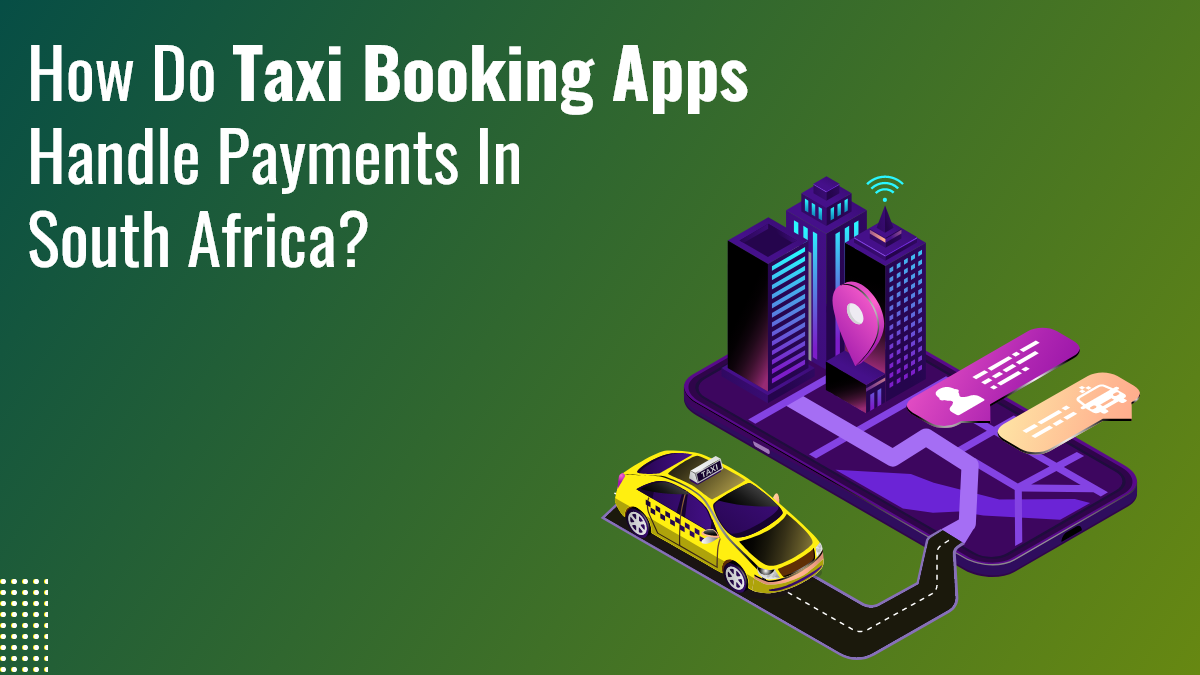How Do Taxi Booking Apps Handle Payments in South Africa?

Taxi booking apps have revolutionized urban transport, making commuting more efficient and user-friendly. In South Africa taxi app, these apps handle payments through a variety of methods, accommodating the diverse financial needs and preferences of users. This article explores the various payment options available through South African taxi booking apps, their security measures, and the impact on user experience.
1. Credit and Debit Card Payments
Credit and debit card payments are a staple for taxi booking apps in South Africa. Users can securely link their cards to their app profiles during setup. This method offers a seamless payment experience, as fares are automatically charged to the card at the end of each trip. The integration of card payments provides users with a convenient way to manage their expenses without needing to handle cash.
To ensure the security of card transactions, taxi booking apps employ advanced encryption technologies and adhere to PCI DSS (Payment Card Industry Data Security Standard) guidelines. This protects sensitive card information from fraud and unauthorized access, providing users with peace of mind.
2. E-Wallets and Mobile Payments
The rise of e-wallets and mobile payment solutions has expanded payment options for users. In South Africa, popular e-wallet services like SnapScan, Zapper, and international platforms such as Apple Pay and Google Pay are increasingly integrated into taxi booking apps. These options allow users to pay for their rides quickly and securely without entering card details for each transaction.
E-wallets offer added convenience, as users can top up their app wallets using various methods, including bank transfers or other e-wallets. This flexibility is particularly advantageous for users who prefer not to link their primary bank accounts directly to the app, enabling them to manage transportation expenses more efficiently.
3. Cash Payments
Despite the digital shift, cash remains a significant payment option in South Africa. Many taxi booking apps, such as Bolt and Uber, still accommodate cash payments. Users who choose this option pay the driver directly at the end of the ride. This method ensures that the service is accessible to those who are unbanked or prefer not to use digital payment methods.
Cash payments also cater to users who may not have access to banking facilities or prefer to manage their finances with physical money. The app typically provides an estimated fare before the ride, so users know how much cash to prepare. Drivers are trained to handle cash transactions efficiently, ensuring a smooth payment process.
4. Mobile Money and Bank Transfers
Mobile money services, which have gained popularity across Africa, are also becoming an integral part of the payment landscape for taxi booking apps in South Africa. Services like MTN Mobile Money and Vodacom’s VodaPay offer users the ability to pay directly through their mobile network accounts.
Similarly, some apps support direct bank transfers, allowing users to pay directly from their bank accounts without using cards or cash. This method involves confirming transfer amounts and reference numbers, adding an extra step to the payment process but offering users a choice that aligns with their preferences.
5. Voucher and Promo Codes
Voucher and promo code payments are another feature of taxi booking apps in South Africa. Users can redeem vouchers or enter promo codes to receive discounts or even free rides. These promotions are often part of marketing campaigns or loyalty programs designed to attract and retain customers.
Vouchers and promo codes add a layer of flexibility and incentive for users. They can help reduce travel costs and encourage frequent use of the app. Additionally, these features often create a more engaging user experience by rewarding loyal customers and offering occasional discounts.
6. Security and Fraud Prevention
With the variety of payment methods available, ensuring security is paramount. Taxi booking apps utilize encryption, two-factor authentication, and real-time monitoring to protect users' payment information. These security measures help prevent fraud and unauthorized transactions.
Users are encouraged to report any suspicious activity, and most apps have dedicated support teams to address payment-related issues promptly. This proactive approach to security fosters trust and ensures that users feel confident using the app for their transportation needs.
7. Flexibility and Inclusivity
The diverse range of payment options offered by taxi booking apps in South Africa reflects a commitment to flexibility and inclusivity. By accommodating various payment preferences, these apps make their services accessible to a broader audience, regardless of their financial situation or technological comfort level.
Conclusion
Taxi booking apps in South Africa handle payments through a range of methods, including credit/debit cards, e-wallets, cash, mobile money, and bank transfers. By offering these diverse options, the apps cater to the varied needs of users while prioritizing security and convenience. As technology and financial services continue to evolve, taxi booking apps are likely to integrate even more innovative payment solutions, enhancing the overall user experience and ensuring that urban transport remains accessible and efficient for all.
- Industry
- Art
- Causes
- Crafts
- Dance
- Drinks
- Film
- Fitness
- Food
- Spiele
- Gardening
- Health
- Home
- Literature
- Music
- Networking
- Other
- Party
- Religion
- Shopping
- Sports
- Theater
- Wellness
- News


